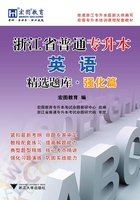
10
Unlike the carefully weighted and planned compositions of Dante, Goethe's writings always have a sense of immediacy and enthusiasm. He was a constant experimenter with life, with ideas and with forms of writing. For the same reason, his works seldom have the qualities of finish or formal beauty which distinguishes the masterpieces of Dante and Virgil. He came to love the beauties of classicism, but there was never an essential part of his make-up. Instead, the urgency of the moment, the spirit of the thing, guided his pen. As a result, nearly all his works have serious flaw of structure, of inconsistencies, of excesses and redundancies and externalities.
In a large sense, Goethe represents the fullest development of the romanticists. It has been argued that he should not be so designated because he so clearly matured and outgrew the kind or romanticism exhibited by Wordsworth, Shelley, and Keats. Shelley and Keats died young; Wordsworth lived narrowly and abandoned his early attitudes. In contrast, Goethe lived abundantly and developed his faith in the spirit, his understanding of nature and human nature, and his reliance on feelings as man's essential motivating force. The result was an all-encompassing vision of reality and a philosophy of life broader and deeper than the partial visions and attitudes of other romanticists. Yet the spirit of youthfulness, the impatience with close reasoning or “logic chopping”, and the continued faith in nature remained his to the end, together with an occasional waywardness and impulsiveness and a disregard of artistic or logical propriety, which savor strongly of romantic individualism. Since so many twentieth-century thoughts and attitudes are similarly based on the stimulus of the Romantic Movement, Goethe stands as particularly the poet of the modern times as Dante stood for medieval times and as Shakespeare for the Renaissance.
1.The title that best expresses the ideas of this passage is____.
A.Goethe and Dante
B.The Characteristics of Romanticism
C.Goethe, the Romanticist
D.Goethe's Abundant Life
2.Goethe's work shows a lack of____.
A.a vision of reality
B.repetitions
C.formal polish
D.knowledge of Shakespeare
3.A characteristic of romanticism NOT mentioned in this passage is____.
A.interest in nature
B.modernity of ideas
C.youthful attitude
D.simplicity of language
4.Goethe is called the poet of the modern times because____.
A.he developed his faith
B.he lived longer than Shelley and Keats
C.he presents many twentieth-century ideas
D.his work has serious flaws
5.According to this passage, Goethe____.
A.stimulated many modern ideas
B.disliked Dante and Virgil
C.should be called a classicist
D.was illogical
1.【答案】C
【精析】文章通过分析歌德诗歌的艺术特点来说明他是浪漫主义诗人(Romanticist)的代表。C项正合题意。
2.【答案】C
【精析】从第一段最后一句“As a result, nearly all his works have serious flaw of structure, of inconsistencies, of excesses and redundancies and externalities.”可知,歌德的诗歌在结构、连贯性方面存在缺陷,并且过于冗长,因此他的诗歌缺乏规范的修饰。故正确答案为C项。
3.【答案】D
【精析】从第二段对浪漫主义诗歌特点的描述可知,D项“语言的简洁”没有被提及,因此D项为正确答案。A项“对自然的兴趣”、B项“观点的现代性”、C项“年轻的精神”均在文章中提到。
4.【答案】C
【精析】文章第二段最后一句“Since so many twentieth-century thoughts and attitudes are similarly based on the stimulus of the Romantic Movement, Goethe Stands as particularly the poet of the modern times...”的大意是,因为20世纪的思想和态度建立在以歌德为代表的浪漫主义的基础上,所以歌德也被看作现代诗人。因此正确答案为C项。
5.【答案】A
【精析】从文章最后一句话可推断,很多现代的思想观点都是在以歌德为代表的浪漫主义运动的刺激下产生的,也就是说在某种程度上,是歌德促进了这些现代思想的产生。因此A项为正确答案。